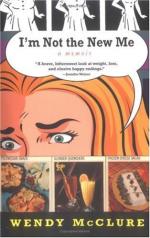I ought to say, just here, that, in a recent correspondence with Professor Park upon this matter, I found him more or less unconscious of having been so generous with his theology to the girls. I am giving the pupil’s impressions, not the teacher’s recollections, of that Bible-class; and I can give no other. Of course, I may be mistaken, and am liable to correction; but my impressions are, that he gave us his system of theology pretty straight and very faithfully.
I cannot deny that I enjoyed those stern lessons. Not that I had any marked predilections towards theology, but I liked the psychology of it. I experienced my first appreciation of the nature and value of logic in that class-room, and it did me good, and not evil altogether. There I learned to reason with more patience than a school-girl may always care to suffer; and there I observed that the mysteries of time and eternity, whatever one might personally conclude about them, were material of reason.
In many a mental upheaval of later life, the basis of that theological training has made itself felt to me, as one feels rocks or stumps or solid things underfoot in the sickly swaying of wet sands. I may not always believe all I was taught, but what I was taught has helped me to what I believe. I certainly think of those theological lectures with unqualified gratitude.
The Tuesday evenings grow warm and warmer. The butterflies hover about in white muslins, and pretty little bows of summer colors glisten on bright heads as they bend over the doctrines, around the long table. On the screens of the open windows the June beetles knock their heads, like theologues who wish they could get in. There is a moon without. Visions of possible forbidden ecstasies of strolls under the arches of the Seminary elms with the bravest boy in the Academy melt before the gentle minds, through which depravity, election, predestination, and justification are filing sternly. The professor’s voice arises:
“A sin is a wrong committed against God. God is an Infinite Being; therefore sin against Him is an infinite wrong. An infinite wrong against an Infinite Being deserves an infinite punishment—”
Now, the professor says that he has no recollection of ever having said this in the Bible-class; but there is the note-book of the girl’s brain, stamped with the sentence for these thirty years!
“I have sometimes quoted it at the Seminary,” he writes, “for the purpose of exposing the impropriety of it. I do not think any professor ever quoted the statement, without adding that it is untenable. The Andover argument was ——“[5] He adds the proper controversial language, which, it seems, went solidly out of my head. Tenable or untenable, my memory has clutched the stately syllogism.
Sharp upon the doctrines there falls across the silence and the sweetness of the moonlit Hill a strange and sudden sound. It is louder than theology. It is more solemn than the professor’s system. Insistent, urging everything before it—the toil of strenuous study, the fret of little trouble, and the dreams of dawning love—the call stirs on. It is the beat of a drum.




